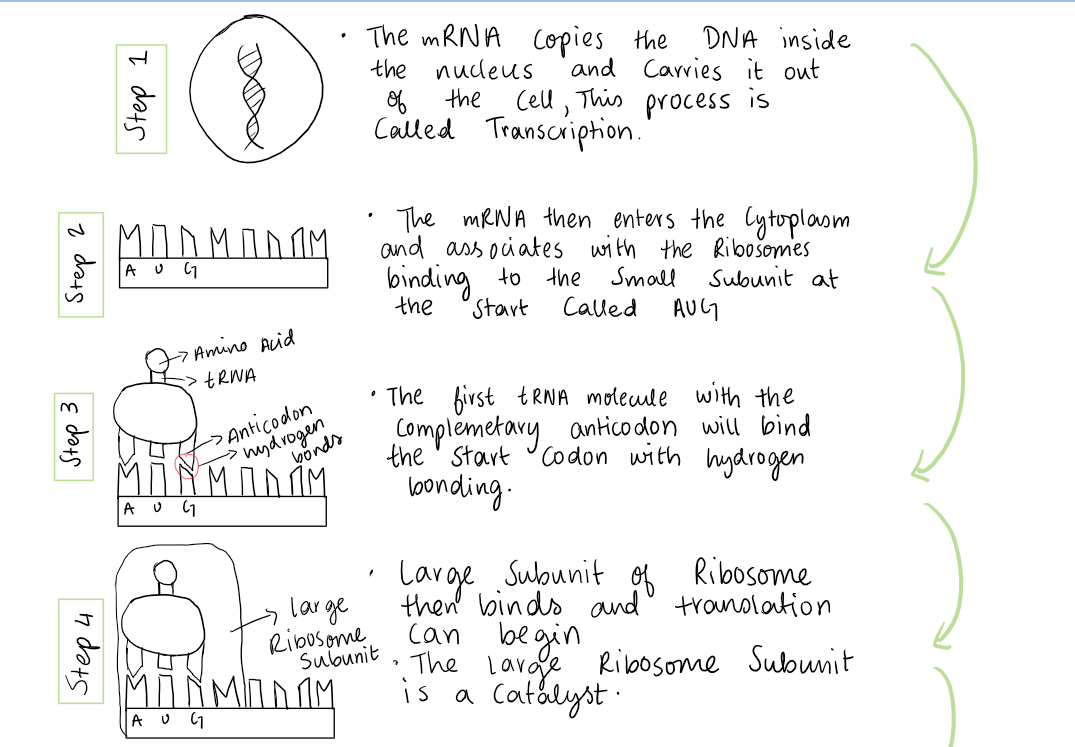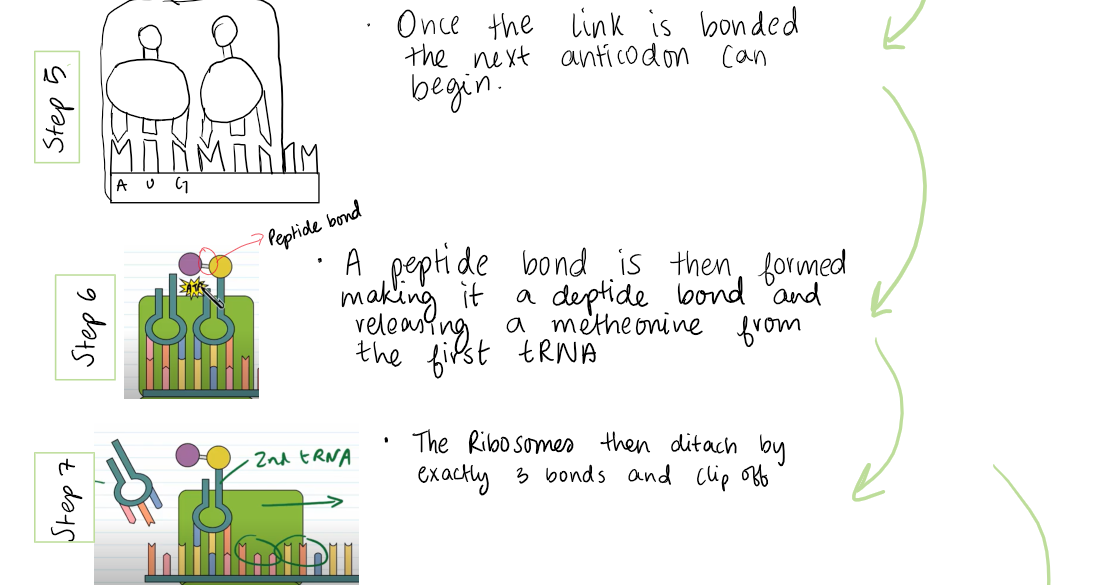protein synthesis : principles and applications of science
protein synthesis
Nucleus
- DNA contains instructions for making the enzymes (a protein)
- mRNA - copy of DNA instructions (the process of making the copy is called transcription)
- mRNA leaves the nucleus
rough endoplasmic reticulum
- ribosomes use instructions in mRNA to synthesise protein
- proteins are made of amino acids
- synthesising proteins need energy from atop produced by mitochondria (ATP is broken down for the energy to be produced)
- completed enzyme is packed into a vesicle
- ribosomes use instructions on mRNA to synthesise protein from amino acids using energy from ATP produced by mitochondria
- completed enzyme is packed into a vesicle
- the packed vesicle then travels to Golgi apparatus
Golgi apparatus
- the enzyme is modified and the structure is changed
- enzyme is packed again into a vesicle
- vesicle moves towards the cell membrane
- enzyme is then released outside cell
- the process is called exocytosis
watched a video on protein synthesis and here are the notes from that:


